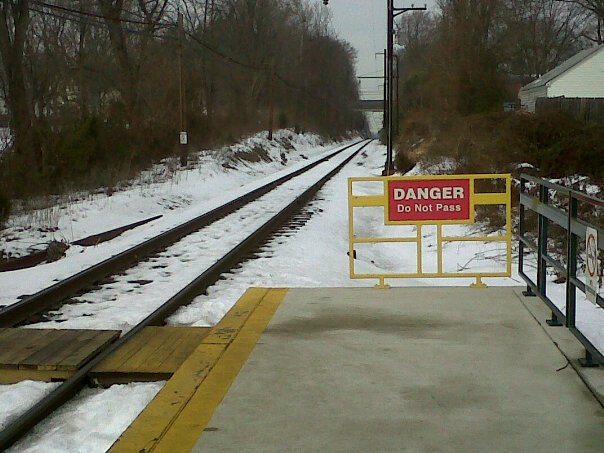We knew it was coming.
A surge of counter-activism, pedaling the lack of global sympathy for some tragedies as a right to denigrate people experiencing another.
Social media is peppered now with vitriolic posts and memes ranting about how horrible and undeserving France is of the sympathy it is receiving. Everyone has the right to their opinion and, conversely, should not feel obligated to express solidarity for anything. But proclaiming that some people don’t deserve an outpouring of condolence is never an honorable or effective way to drum up attention for another issue.
It is sadly, true that France has a long ugly history of brutal oppression in some areas of the world. This fact really does need to be aired more in the media. It is also true (and should be shouted from the rooftops) the media tends to ignore the suffering of peoples outside of the Western countries, particularly those poorer regions dominated by black and brown people. Mass killings in Africa, Asia, and the Central & South Americas often have death tolls much higher than U.S. and Europe usually experience for terror and other acts of random violence. No incident in the current decade in any of these areas has ever dominated the media cycle like the Charlie Hebdo and the November 13, 2015 terror attacks in Paris.
What if I told you:
You can show concern for people victimized by incidents in Paris and Syria, Beirut, Kenya, Missouri and anywhere else at the same time? And yes, without minimizing the importance of any one of these? Saying, you are NOT going to show concern for Paris simply because no one was showing support for other places is imbecilic and counterproductive. Were YOU posting about these other places before the Paris event? No? Well have a seat then.
Here’s a tip about the way social media works. Popular discussions, hashtags, keywords, get in front of more eyes. If you want to get more people talking about some of those other worthy causes, there is a super keen way to do so. Be a human and express your sympathy for Paris attacks and/or then say let’s not forget to talk about these other places also.
Beginning a post for justice with cruelty towards others is hypocritical.
France’s history of colonialism and racism is not a secret. In fact, only months ago has France bothered to apologize for extorting 97mn gold francs (€17 billion today) out of Haiti, one of the poorest countries in the world, to compensate French slave owners for loss of income. But, France, somehow mourned the events of 9/11 in solidarity with the U.S. without feeling the need to rant about how horrible we have been towards Native Americans since, well, the birth of our country. Likewise, as much as our country likes to downplay the role of slavery in its history, we can hardly use France’s atrocities in Africa as justification to withhold human compassion.
Brutal truth time. ISIS, who has claimed responsibility for the most recent Paris attacks, is likely the United States’ fault. Political analysts on both sides of the Atlantic have asserted this claim. Remember, France and Germany thought the Iraq invasion, which has been blamed for sowing the seeds for ISIS, was a horrible idea. Americans mocked France for their perspective (remember Freedom Fries) and millions rushed to re-elect a President that created the 12 year war zone that became the cradle for ISIS. France and the rest of Western Europe are nonetheless feeling the most pain right now from this cancer. Furthermore, France, along with the rest of Europe, has been challenged with providing refuge or safe passage to nearly a million people fleeing from horrific ISIS violence.
Truthfully, it is especially disheartening to observe public support for #BlackLivesMatter has not reached the levels as that of the Paris attacks, both Charlie Hebdo and the November 13 incident. The media often uses derisive language to describe protestors and selects the most negative images when covering demonstrations. When a political issue is close to home, one can indeed lose their minds over these injustices, however, big or small. Like the fact that FaceBook has offered a profile color change option to show solidarity for causes like marriage equality and, and now France. But there never was one for #BlackLivesMatter.
Using lack of support for the #BlackLivesMatter movement is nevertheless an unacceptable reason to cast stones at the French trying to bury their dead and nurse their wounded. Some of the lives lost in the recent Paris attack were black lives, and all the blood spilled was red. Even if there had been no black victims, the Parisians affected by the tragedy deserve our sympathies, or respectful silence. We must not forget that thousands of French people, especially Parisians, demonstrated in solidarity with black Americans as part of the #BlackLivesMatter movement from day one, despite France’s own internal problems with race.
Showing universal support for all victims of terrorism helps to push forth a purer, stronger narrative: Terrorism is a global problem and all victims — not just those in certain wealthy and powerful countries — deserve allies who will come to their side. To accomplish this we must express sympathy for victims in one part of the world without throwing shade towards those in another part.
During the days after the Charlie Hebdo attack, I did not want to jump on the #JeSuisCharlie bandwagon because of the bigoted cartoons of the magazine. So, instead, I chose to condemn the violence as inexcusable under any circumstances and express my condolences to the people of France, the victims, and their families. Shortly afterwards, I moved to Paris. A few days I ago, I witnessed the splendid resiliency of the French first hand.
And, by the way, Mark Zuckerberg is not French. If you think there should be a profile change option to support #BlackLivesMatter, than campaign for that. (I will join you).

